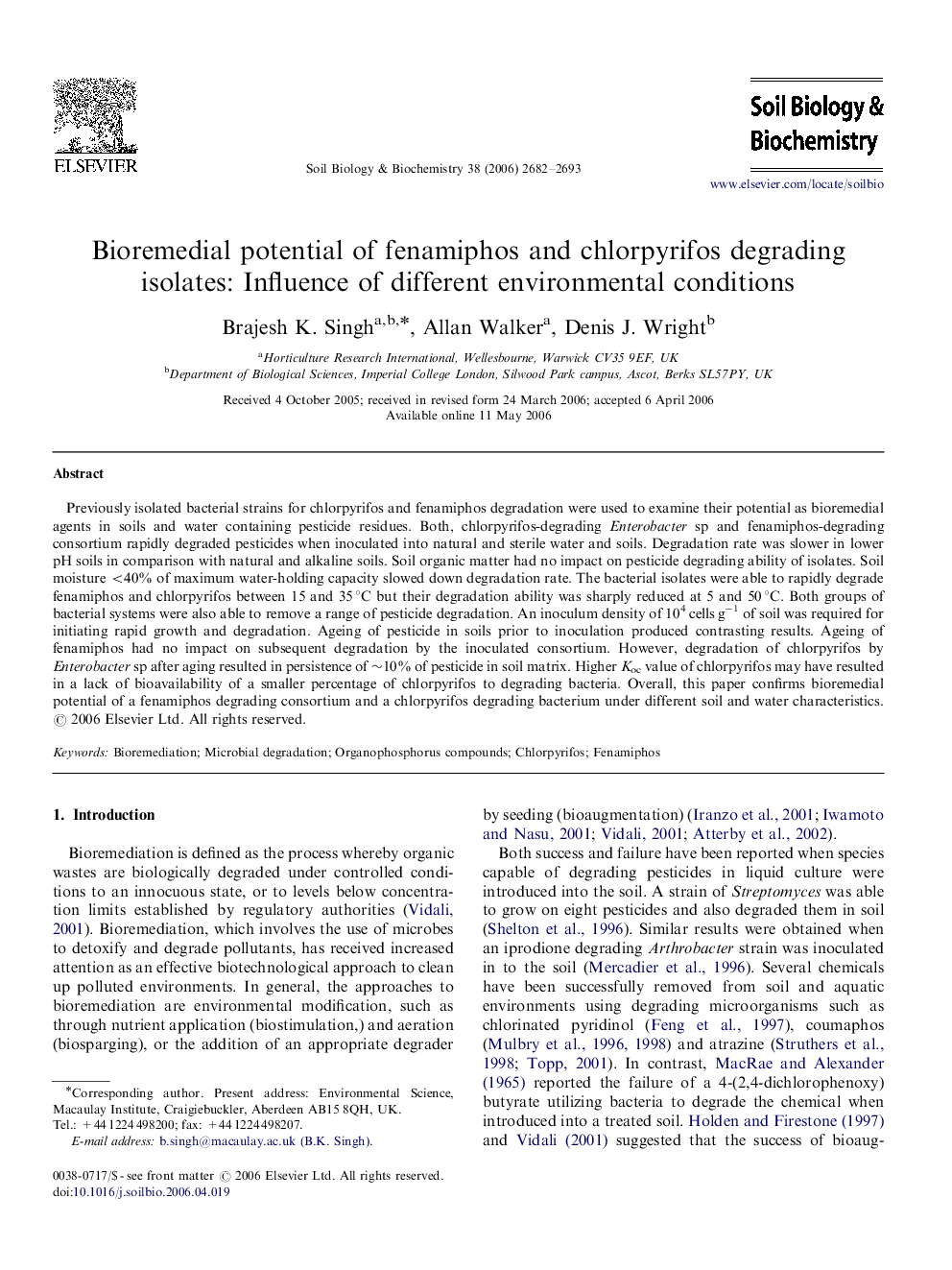| Article ID | Journal | Published Year | Pages | File Type |
|---|---|---|---|---|
| 2027121 | Soil Biology and Biochemistry | 2006 | 12 Pages |
Previously isolated bacterial strains for chlorpyrifos and fenamiphos degradation were used to examine their potential as bioremedial agents in soils and water containing pesticide residues. Both, chlorpyrifos-degrading Enterobacter sp and fenamiphos-degrading consortium rapidly degraded pesticides when inoculated into natural and sterile water and soils. Degradation rate was slower in lower pH soils in comparison with natural and alkaline soils. Soil organic matter had no impact on pesticide degrading ability of isolates. Soil moisture <40% of maximum water-holding capacity slowed down degradation rate. The bacterial isolates were able to rapidly degrade fenamiphos and chlorpyrifos between 15 and 35 °C but their degradation ability was sharply reduced at 5 and 50 °C. Both groups of bacterial systems were also able to remove a range of pesticide degradation. An inoculum density of 104 cells g−1 of soil was required for initiating rapid growth and degradation. Ageing of pesticide in soils prior to inoculation produced contrasting results. Ageing of fenamiphos had no impact on subsequent degradation by the inoculated consortium. However, degradation of chlorpyrifos by Enterobacter sp after aging resulted in persistence of ∼10% of pesticide in soil matrix. Higher Koc value of chlorpyrifos may have resulted in a lack of bioavailability of a smaller percentage of chlorpyrifos to degrading bacteria. Overall, this paper confirms bioremedial potential of a fenamiphos degrading consortium and a chlorpyrifos degrading bacterium under different soil and water characteristics.
